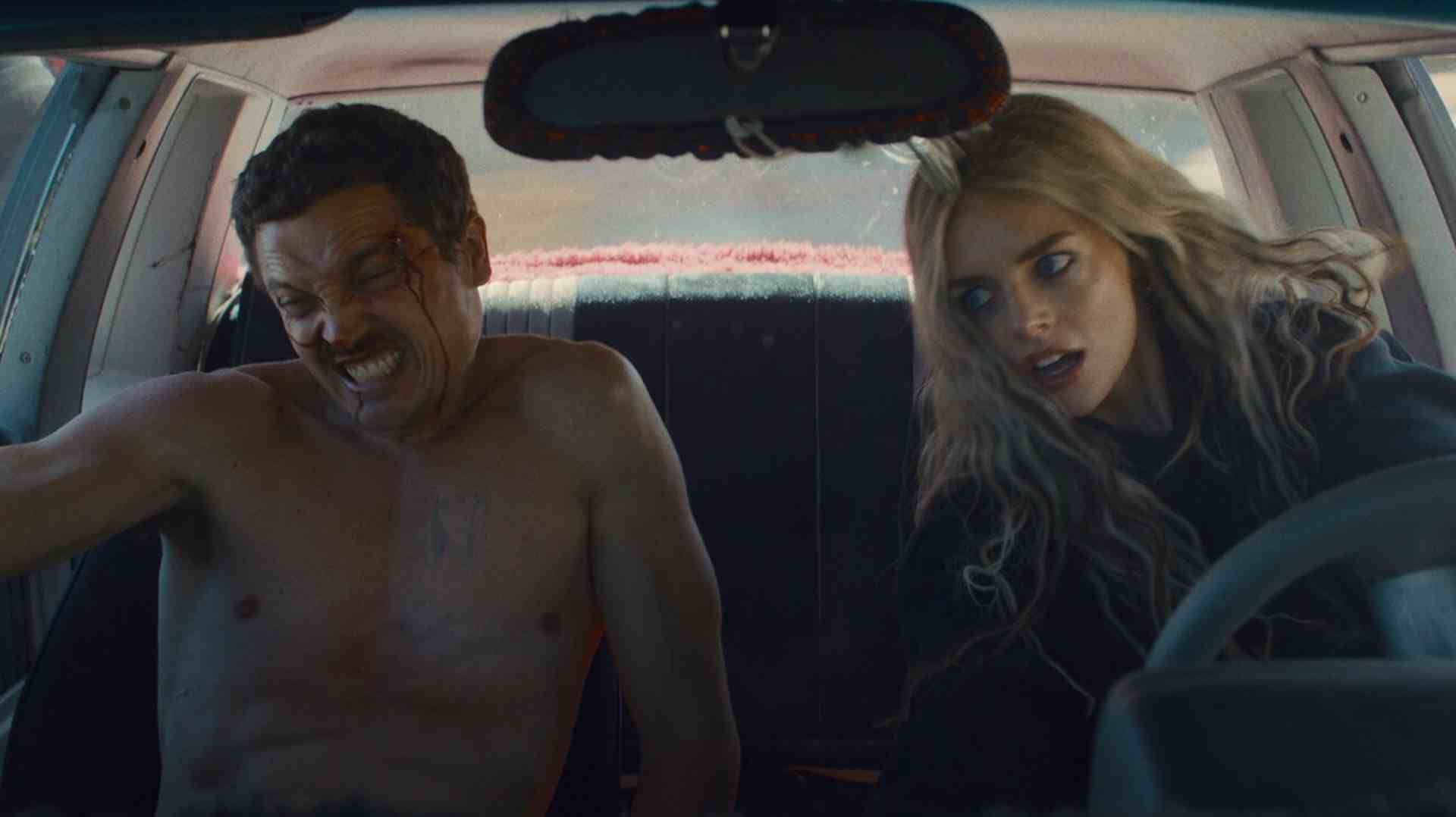After Edie discovers she’s pregnant, she ditches a test at school to confront John about it, despite her insistence to her friend Baby Girl (Kyanna Simone) that she’s done with him for good. It’s a last-ditch effort to see if John can prove her expectations wrong and embolden her subconscious desire to start a family with him, in spite of how impossible that scenario would obviously be. Edie’s idealistic desires meet crushing reality when she enters John’s apartment and finds him being roughed up by two goons. And instead of walking away, Edie grabs a tire iron and helps John escape, embarking on a kinetic car chase that results in the death of Nico’s cardcounter (Randall Park) whom John had kidnapped. At every turn, Edie is offered a choice, like Morpheus presenting the pills in The Matrix, and at every turn she makes the wrong one, helpless to her screenwriter-dictated fate. This comes up again—Edie, caught between the smart choice and the stupid choice—when she’s asked to be John’s getaway driver for a casino heist. Ever encumbered by her aggravating love for John and the siren song of the criminal underworld she was born into, she agrees.
Part of the message of Eenie Meanie seems to be that, contrary to much of the plot, the past does not actually dictate the future. Fate isn’t immutable, humans are capable of change at any point, of escaping their circumstances and breaking toxic cycles. Later in the film, Edie reconnects with her father (the great Steve Zahn), who’s gone from the criminal drug addict she grew up with to a loving, upper-middle-class family man—and father to a young daughter who gets the life Edie never had. In turn, Edie pursues that same life, becoming a mom to a son in a beautiful home with two bathrooms, a signifier of wealth she’s coveted since she was a child.
Yet Simmons’ characterization of Edie and the trajectory of her life is deeply constricting, as the film watches her throw away her career out of pity for some dirtbag so she can mother his child. It can’t help but come across as regressive. During a tender moment, Edie laments to John that the people in her life have changed, but never for her, never to help her circumstances, never to make her life better. This exchange furthers the annoying idea that even though Edie breaks her own cycle in the end, she’s only ever been at the whims of men. Maybe that’s a bit unfair; people can be imperfect, contradictory creatures just as they can be capable of change. But as this film was written and directed by a man, and produced by two of the men behind Deadpool, it’s difficult not to side-eye the whole thing.
While this odd and uncomfortable theme pervades Eenie Meanie, the bulk of the film is mostly watchable and even engaging. The script, when not dealing with its characters, is tight, with zippy car chases (shot by Tim Ives), snappy dialogue, and magnetic performances from Weaving and Glusman. Marshawn Lynch even makes a brief appearance as one of Nico’s other drivers that continues to cement the ex-running back as a genuinely funny and winsome screen presence. Still, Eenie Meanie largely coasts on clichés, every brief high point deflated by its worldview.
Director: Shawn Simmons
Writer: Shawn Simmons
Starring: Samara Weaving, Karl Glusman, Jermaine Fowler, Marshawn Lynch, Randall Park, Steve Zahn, Andy Garcia
Release Date: August 22, 2025 (Hulu)

 Keep scrolling for more great stories.
Keep scrolling for more great stories.
